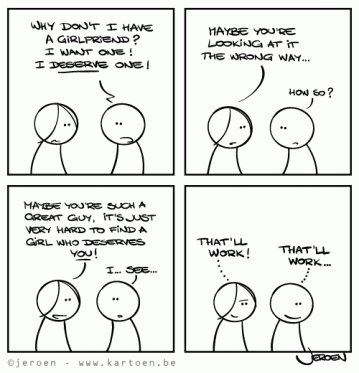
Sometimes. we are faced with differing attitudes and perceptions towards a person or situation which can lead to significant mental distress, to the extent that our thoughts and behaviors become contradictory. In 1954, Social psychologist Leon Festinger devised the Cognitive Dissonance Theory. His book A Theory of Cognitive Dissonance centres around the idea that humans strive for internal consistency which can give rise to irrational and sometimes maladaptive behavior.
What is Cognitive Dissonance?
The psychological distress experienced by an individual who holds two or more opposing beliefs, ideas and values. As claimed by Festinger, we hold many cognitions (thoughts/reasoning) about the world and ourselves; ‘when feelings and facts are in opposition, people will find – or invent – a way to reconcile them’. Essentially, discrepancy is induced, resulting in a state of tension known as cognitive dissonance. As the experience of dissonance is distasteful, we are motivated to lessen or remove it, in order to reach consonance (agreement). Thus, the greater the discomfort, the greater the desire to reduce the dissonance.
For example: Someone is likely to experience dissonance when addicted to gambling, yet continue to gamble despite being on the verge of bankruptcy. Or someone who is addicted to smoking, yet continues to smoke regardless of ill consequences. Or, someone who repeatedly delays revision, whilst stressing for the exam that’s round the corner etc..
We can all relate, especially when embarking on a new diet, job applications, new years resolution etc. Studies show the general effectiveness of psychotherapy and psychological intervention can partly be explained through cognitive dissonance theory. Some social psychologists have argued that the act of freely choosing a specific therapy together with the effort and money invested by the client in order to continue to engage in the chosen therapy, positively influences the effectiveness of therapy.
Dissonance reduction
Inevitably, we feel pressure to relieve ourselves of the psychological tension dissonance brings us. Consequently, we engage in dissonance reduction so that our expectations and reality align. Festinger proposes we may go about this in different ways:
Attitude: I’m starting revision tomorrow and I shall complete a minimum of three hours everyday
Behavior: Watching tv, chatting on the phone, anything classed as procrastination.
- Change behavior/cognition: Stop procrastinating
- Justify behavior/cognition: ‘There’s still two weeks till the first exam, I’ve got time…’
- Justify behavior/cognition by adding new cognitions: ‘I’ll make it up by doing 5 hours tomorrow’
- Ignore/Deny any information that conflicts with existing beliefs: ‘I didn’t procrastinate today, I always work hard’
- Derogating/Devaluing the activity: ‘Sod this, I don’t care to revise anyway’
What causes Dissonance?
Sometimes we conjure up dissonance when voluntarily engaging in an immoral or unpleasant activity that violates our moral standards to achieve some desired goal. E.g Cheating, Theft, Prostitution, Gang initiation etc. We can mentally reduce our discomfort by exaggerating the desirability of the goal. Other causes include when we endeavor to:
- Explain inexplicable feelings: In the wake of a disaster. irrationally fearful rumours spread in nearby communities not involved in the disaster because of the need of those who aren’t threatened to justify their anxieties.
- Minimize regret of irrevocable choice: Bettors at a racetrack are more confident in their chosen horse immediately after placing the bet as it’s too late to change it. (Bettors felt post-decision dissonance)
- Justify behavior that opposed their views: Students judge cheating less harshly after being induced to cheat on a test.
- Align one’s perceptions of a person with one’s behaviour toward that person: The Ben Franklin effect refers to his psychological finding that we grow to like people for whom we do nice things and dislike those to whom we are unkind.
- Reaffirm already held beliefs: Confirmation Bias refers to how people read or access information that affirms their already established opinions, rather than referencing material that contradicts them.
Closing thoughts
According to Festinger, until the person suffering with perceptual disharmony can find a way to justify immoral actions and decisions, a calm mental state cannot be achieved, especially when these immoral actions and decisions challenge the way they see themselves. Essentially, insight and self-awareness are paramount to discern the role cognitive dissonance plays in our lives. When we find ourselves excusing bad behavior or emotionally reasoning decisions that aren’t aligned with our values then it’s time to take a step back and view the situation rationally. The familiar term ‘Sour grapes‘ denotes how we persuade ourselves to not want something we actually cannot have. At times the opposite occurs and we yearn for things that are clearly unattainable. It may feel appropriate to wrap ourselves in self delusion, but it’s critical that we recognize when our own perceptions, attitudes, and opinions about the external world are altered from within.
I firmly believe our minds and body alert us when an issue needs to be addressed in one way or another. The longer we ignore, avoid or deny the issue, the larger the magnitude of mental distress. It’s time to stop lying to ourselves. Instead, we should analyse the situation and weigh up the pros and cons of the possible decisions we can make, even if it means literally writing it down. Whether the reduction or resolution of dissonance arises from taking the first step, diving straight into the deep end, ending a relationship or simply admitting your mistakes and apologising, it will save you time, mental effort and agony if you do so and help to attain inner peace.
Never become stricken with inner conflict. Pay attention to your inner critic and soldier through every situation life dares to throw at you.


[…] Homer Simpson reflecting roughly how I felt (https://theoceanofknowledge.wordpress.com/2014/04/07/cognitive-dissonance-the-torments-of-internal-c…😉 […]
LikeLike
[…] Source: https://theoceanofknowledge.wordpress.com/2014/04/07/cognitive-dissonance-the-torments-of-internal-c… […]
LikeLike